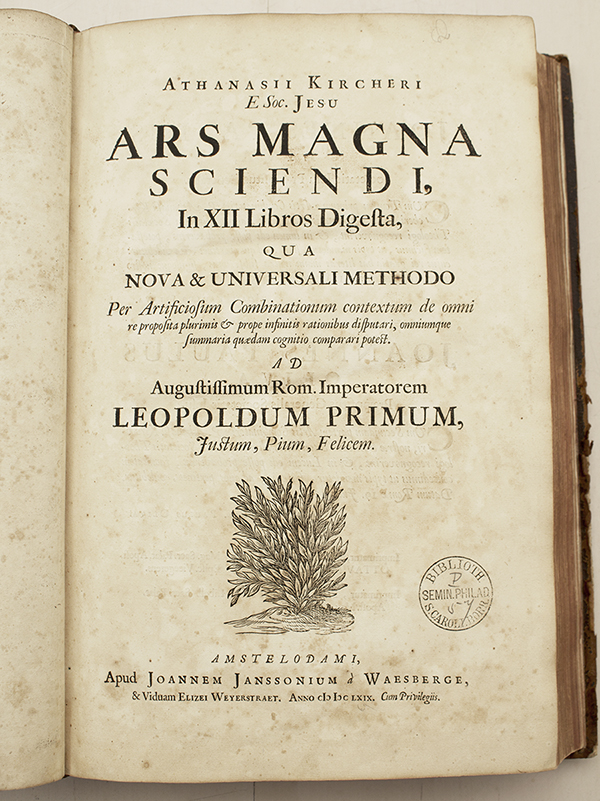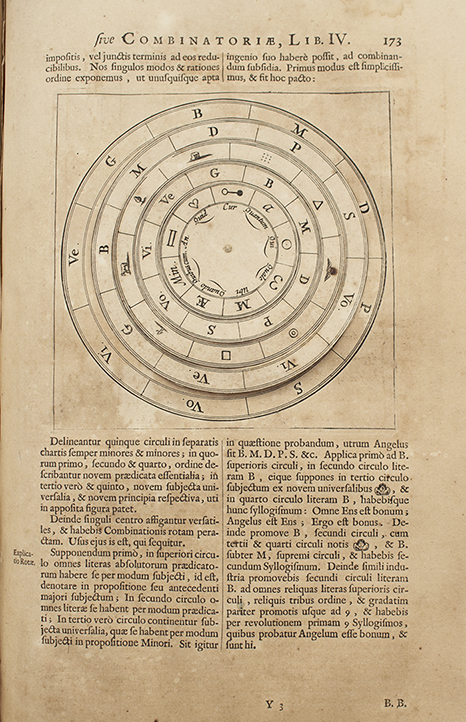A selection of rare materials from McHugh Special Collections is currently on view in the Library’s 5th floor Heritage Room. One of the books highlighted in the exhibit “From Medieval to Modern” is Athanasius Kircher’s Ars Magna Sciendi Sive Combinatoria (1669).
Athanasius Kircher, S.J. (1602-1680) was a German Jesuit scholar and polymath who published approximately 40 major works in a wide range of fields, most notably in the fields of comparative religion, geology, medicine, technology, music, and Egyptology. Because of his enormous range of interests, Kircher has been called the “last Renaissance man” and “Master of a Hundred Arts.”
His Ars Magna Sciendi Sive Combinatoria (Amsterdam, 1669) was an attempt to use logic to categorize all knowledge under the nine attributes of God, an expansion of the “Combinatoric Art” of Ramon Lull, the thirteenth-century Majorcan philosopher. Kircher argues that these nine ideal attributes are the pattern for all creation and that to completely understand the universe, it must be organized in the mind according to this pattern. Consequently, Kircher designs a system for teaching all disciplines in the style of the encyclopedic movement. However, Kircher’s work is not pedagogical, but rather advocates a scientific method to finding truth, a logic applicable to all divisions of learning. In the book, Kircher applies this to numerous disciplines such as theology, medicine, and logic.
To read more about the Weinberg Library’s Rare Book Collection visit our collection page here. “From Medieval to Modern” will be on display during normal library hours through Tuesday, April 25. On Tuesday, April 11th, Special Collections Librarian Michael Knies will discuss the exhibit at 6 p.m. in the Heritage Room of the Library. A reception will immediately follow the talk. This event is free and open to the public. For more information, please email michael.knies@scranton.edu or call 570-941-6341.



